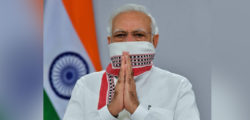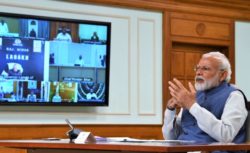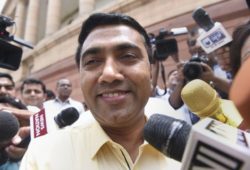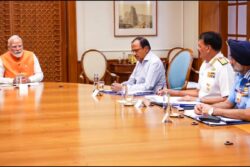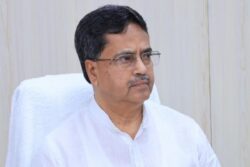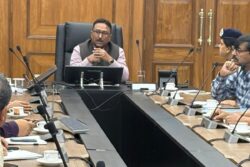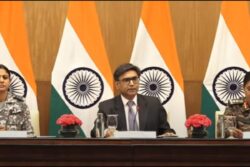Covid-19: Revamped facilities, early screening help Karnataka keep numbers down
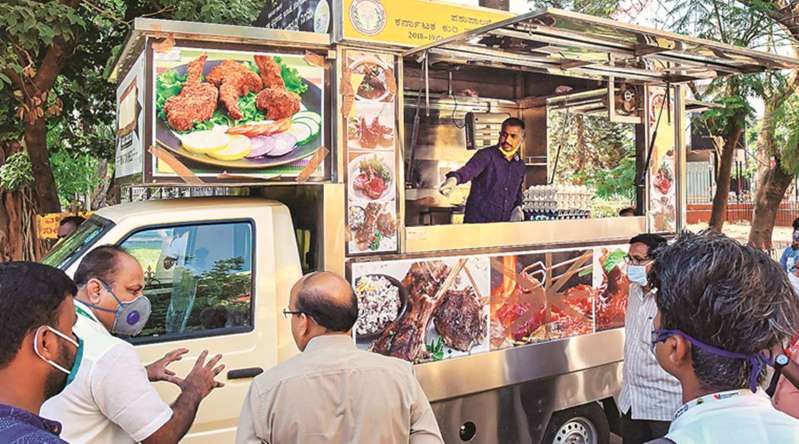
EARLY response, aggressive contact tracing plus quarantining and good medical infrastructure have helped Karnataka, that saw the country’s first death due to coronavirus, keep down its COVID-19 numbers. Once No. 3 in the country, it is now at No. 11 in terms of tally.
On Monday, its numbers stood at 512 cases and 19 deaths. This includes 193 who have recovered, 294 who are still in hospital isolation and five in ICU. While over 7,000 beds have been set aside for COVID-19 care in government and private care facilities, only 324 beds are occupied at present.
“We have not added a large number of cases and the credit goes to health workers,” State Health Commissioner Pankaj Kumar Pandey said.
Health Secretary and Additional Chief Secretary Jawaid Akhtar said they were not letting their guard drop. “Our preparedness by way of infrastructure, materials required and human resources is to tackle even the worst-case scenarios,” he said.
As early as February 4, more than a month before the state got its first case, the Karnataka Department of Health and Family Welfare cited the WHO to declare coronavirus a public health emergency, and kicked into motion its disease surveillance systems across districts. The state’s system has been honed over the SARS outbreak in 2003, bird flu and swine flu in 2009, MERS in 2011, and Zika and Nipah viruses recently.
“The healthcare system in Kerala gets a lot of credit but the system has worked quite effectively in Karnataka as well. This is because we began work very early. In early March we were sending nurses every night to the airport to screen international passengers,” said Dr H D R Radhakrishna, the Superintendent of the 250-bed C V Raman General Hospital in east Bengaluru, which is now a COVID-19 quarantine facility.
The state’s first coronavirus patient was an information technology sector employee who had returned from the US and tested positive on March 8. Two days later, an elderly man who had returned from Saudi Arabia succumbed, becoming the first casualty due to the virus in the country.
Acting on the advice of experts such as cardiac surgeon Dr Devi Shetty, Dr R Ravindra of the Indian Medical Association and Private Hospitals and Nursing Homes Association, which cited the devastation being caused by the disease in Europe, the BJP government in the state introduced a partial shutdown on March 13, involving primarily curbs on large gatherings.
With a medical infrastructure including as many as 60 colleges, 200 B.Sc nursing institutes, revamped government hospitals, as well as district and teaching hospitals in almost all its 30 districts, Karnataka was well-equipped to handle the emergency. As the cases started surfacing, Victoria Hospital in Bengaluru, a 100-year-old facility attached to the Bangalore Medical College and Research Institute, was converted into a 300-bed COVID-19 centre. The doctors, nurses and staff directly dealing with patients at the hospital were housed on the campus.
Dr Asima Bhanu, the nodal officer at the trauma care centre at the hospital, which currently has 42 patients, says, “We are like a family here. We try to ensure that all the needs of the patients are looked after. While even biryani is being supplied, there is no one to really ask them what they want. We are trying to do that.” A ‘Corona Conquerors’ WhatsApp group that includes the patients helps them stay in touch.
Dr Balaji Pai, neurosurgery professor who is the special officer in-charge of the trauma centre, said most of the patients at the hospital were asymptomatic. “Only one or two patients are in ICU. Our role is confined to looking after their requests and needs.”
Dr Asha Benakappa, former director of the state-run Indira Gandhi Institute of Child Health in Bengaluru, commended the role of “young doctors, the residents and the fellows in teaching institutes, who are shouldering much of the clinical work”.
The State-run Rajiv Gandhi Institute of Chest Diseases has the example of the newly married Dr Arvind Ram, who lived out of his car for over a fortnight while on duty as a nodal officer for coronavirus patients. Dr Deepak U G, earlier in-charge of the patients in a monthly rotation system, sent his family away to ensure they were not exposed to the virus.
A government doctor warned that the positive picture hides the fact that while the state had focused on teaching hospitals, it has ignored basic healthcare facilities like PHCs. “The last-mile connectivity in the healthcare system is lacking, like in most places in India,” says Dr Abhijit Bhograj. A free Sunday clinic his family runs on the outskirts of Bengaluru gets nearly 1,500 people on an average, from rural areas of the state as well as Andhra Pradesh. Pointing out that this shows the lack of doctors in these parts, Dr Bhograj added, “For the first time in 45 years, the clinic is shut due to coronavirus.”
Follow the government’s latest guidance on safeguarding yourself during the coronavirus pandemic, including travel advice within and outside the country. The World Health Organization has also busted some myths surrounding coronavirus. The Ministry of Health’s special helpline is available at +91-11-23978046, [email protected] and [email protected].

